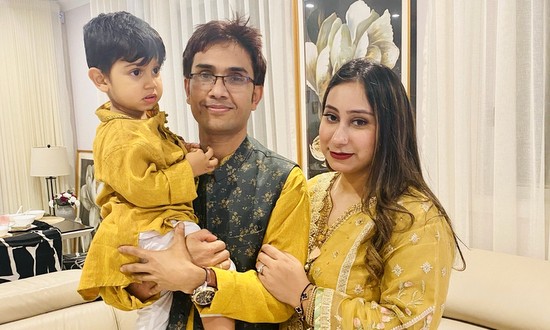Arabic and Bangladeshi parents and parents-to-be are finding support and encouragement thanks to a free parenting program run by Advance Diversity Services in partnership with South Eastern Sydney Local Health District (SESLHD).
Becoming Us, created by Australian parenthood and relationship expert Elly Taylor, lays the early groundwork for teamwork parenting, and helps couples recognise their important roles as partners and not just as parents.
Tasneem Rashid and Fatima Sayed from ADS, and Rubina Huq, Cross Cultural Worker for SESLHD, all trained with Ms Taylor in April 2021 to become Becoming Us facilitators, and teamed up to offer sessions to the local communities.
Ms Rashid said, ‘Ninety-nine per cent of my female clients from Bangladesh arrive on spouse visas and often do not have any of their own family here.’
“Their spouses work and the mother is expected to be the main parent. Young mothers at home often feel isolated.
“The stress of being in a different culture, navigating in a different environment, with a young baby, without family and friends support, can feel overwhelming for young mothers. Our program helps these women and their partners navigate the new systems in Australia, and introduces and connects them to services and other newcomers to build community support.’
Ms Huq said, “The ‘gold’ for new parents is learning that relationships change post baby and we have to work hard at our relationship and differences. Staying connected means learning how to talk and listen to each other respectfully.”
She said strategies discussed in Becoming Us included self-care – a crucial component given that one in six new mothers and one in ten new dads experience post-natal depression.
“Sharing personal experiences in this group, including post-natal depression and other challenges, normalises many of the difficult situations couples and families experience, and gives you the sense that you are not alone,” she said.
Parenting challenges ‘universal’
Fatima Sayed was excited about co-facilitating the workshop for Arabic participants with Ms Huq. The sessions also attracted participants who arrived in Australia on spouse visas and faced the challenges of parenting young children.
“The women are all under 30 years old, mothers with young infants, who are very keen to learn useful information about parenting and who understand the importance of professional guidance,” she said.
“Sharing experiences with first-time parents in the same situation, and with others with older children will also help ease stress and anxiety and normalise the challenges. Challenges are universal!’”
Ms Sayed said that, while newly arrived Arabic women often had in-laws nearby, it was not the same as having the support of their own families.
“Many women express that when they have babies, they lose freedoms such as being able to study or learn English because there is no one to look after the children.
“Breastfeeding also makes it overwhelming to schedule themselves, so they stop interacting with people, even in online sessions, becoming more isolated.”
Intimacy during the transition to parenthood is another sensitive workshop topic that Ms Sayed said needed to be approached in a culturally appropriate way. “The local Arabic community is connected, so people know each other. It would be disrespectful to speak about your partner in front of a group.”
Ms Sayed said she loved what she learned and got a lot from the training.
“One thing that stuck with me was a simple example Elly gave about having realistic expectations of your partner. She said, “Don’t expect your partner to read your mind and to know that you need a glass of water while breastfeeding. You have to ask for it!”

